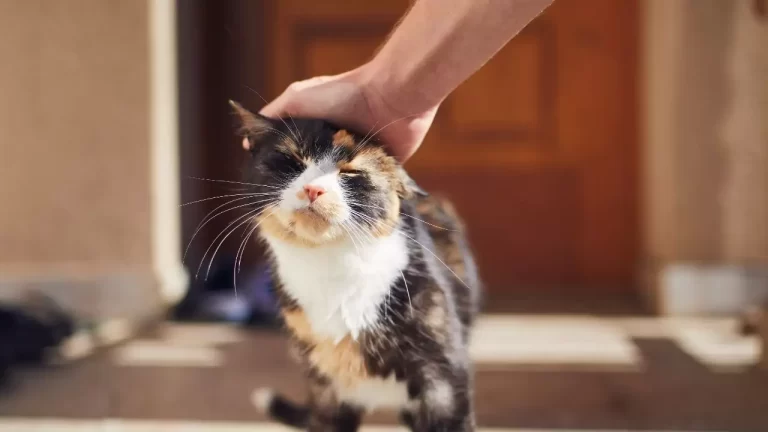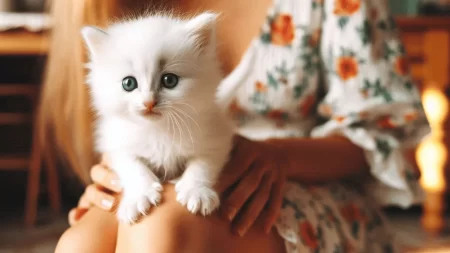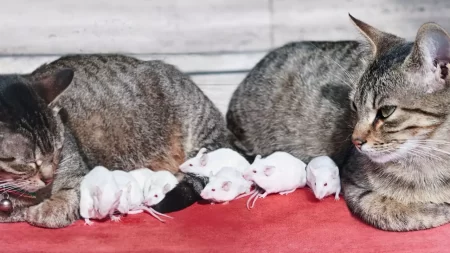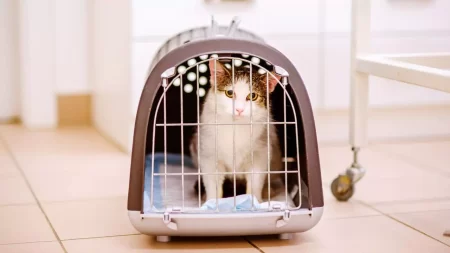Cats can remember people for up to 10 years. However, if a person only interacts with a cat once, the cat may only remember them for about 16 hours. If a visitor has a strong emotional connection with the cat and visits frequently, the cat may remember them for years.
Cats have short-term memories that last about 16 hours. However, they also have long-term and lifelong memories. Cats may also have selective memories.
A 2013 study published in the journal “Behavioral Processes” found that cats can remember their owner’s voice for up to 10 years, even after long periods of not seeing each other.
Cats are more likely to recognize you if you are reunited in their familiar home environment. They will likely still recognize your smell and voice, even if you’ve been separated for a while.
Types of Cat Memory
Cats have two types of memory: short-term and long-term. Short-term memory is the ability to recall information for a brief period of time, such as a few seconds or minutes.
Long-term memory is the ability to store and retrieve information for a longer period of time, such as days, months, or years.
Short-term memory is useful for cats to perform tasks, such as hunting, playing, or navigating their environment. Long-term memory is useful for cats to form bonds, learn from experience, or recognize familiar people, animals, or objects.
How Long Do Cats’ Memories Last?
The duration of cats’ memories varies depending on the type of memory and the subject of the memory. Here are some examples of how long cats can remember different things:
- Owners: Cats can remember their owners for a very long time, even if they are separated for months or years. This is because cats form strong emotional attachments to their owners, who provide them with food, shelter, affection, and security. Cats can recognize their owners by their scent, voice, or appearance, and may show signs of joy, excitement, or anxiety when they reunite with them.
- Visitors/strangers: Cats can remember visitors or strangers for a shorter time, usually a few hours or days. This is because cats are wary of unfamiliar people, who may pose a threat or a challenge to their territory. Cats can recognize visitors or strangers by their scent, behavior, or appearance, and may show signs of curiosity, indifference, or aggression when they encounter them.
- Other things they can remember: Cats can remember other things that are important or interesting to them, such as their favorite toys, places, or food. For example, cats can remember where they hid their toys, where they found a cozy spot, or where they tasted a delicious treat. Cats can also remember things that are associated with positive or negative emotions, such as a friendly or hostile animal, a pleasant or unpleasant sound, or a rewarding or punishing action.
Factors That Influence Cat Memory
Cat memory is not fixed and can be affected by various factors, such as:
- Positive experiences: Cats can enhance their memory by having positive experiences, such as playing, socializing, or learning new skills. These activities stimulate the brain and increase the production of neurotransmitters, such as dopamine and serotonin, which are involved in memory formation and consolidation. Positive experiences can also create associations that help cats remember things better, such as associating a person with a treat, a toy, or a cuddle.
- Traumatic events: Cats can impair their memory by having traumatic events, such as abuse, neglect, or injury. These events cause stress and anxiety, which can damage the brain and reduce the production of neurotransmitters, such as dopamine and serotonin, which are involved in memory formation and consolidation. Traumatic events can also create associations that make cats forget things faster, such as associating a person with a threat, pain, or fear.
Age: Cats can decline their memory by aging, which is a natural process that affects all living beings. Aging causes changes in the brain, such as the loss of neurons, synapses, or blood vessels, which are essential for memory function. Aging also affects the immune system, which can make cats more susceptible to diseases or infections that can impair their memory. However, aging does not mean that cats lose their memory completely, and they can still remember things that are meaningful or familiar to them.







